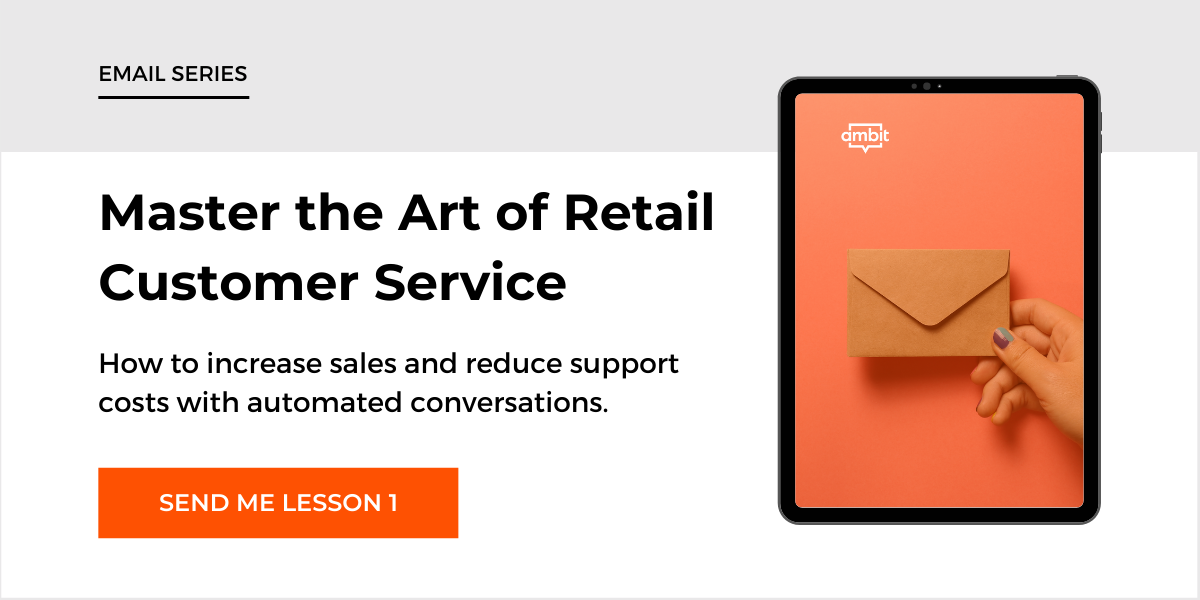This week's article is a guest blog written by Maja Talevska of ReviewMoose.
The millennial generation (those born between 1981 and 1996) are, in size, larger than any other adult cohort.
In 2020 approximately 1.8 billion, or 23% of the global population belonged to the millennial generation.
Along with their sheer size, millennials are also the first technology native demographic. This makes them a key market for businesses in what is now a digital-first world, particularly for retailers as online shopping growth continues to boom.
The popularity of online shopping has given birth to a number of eCommerce stores, many of which are geared towards the interests, habits, and experiences expected by millennials.
Below we take a look at eight of the most popular online shopping stores amongst this tech-savvy generation.
Amazon
Amazon is one of the largest online shopping stores in the world with over 150 million Amazon Prime members and average hourly sales of $17 million. It is also one of the most popular online shopping platforms among millennials, outpacing baby boomers by a ratio of two to one.
Amazon’s success amongst millennials is largely driven by three factors; selection, price, and convenience.
Their ability to offer a wide variety of products is what attracts large numbers of millennials. With over 12 million products (350 million if you include Amazon Marketplace sellers) if a millennial can think of it, it’s most likely on Amazon.
Despite millions of options available, finding products is made easy through Amazon’s sophisticated search features and product recommendation engine that offers personalised products to users based on their previous transaction and browsing history.
Amazon is also well-known for its low-cost, competitive pricing. Even after finding a product on a competitor's website, 90% of consumers head to Amazon for the same product to compare and price-check knowing it is likely to be cheaper. Couple their incredibly low prices with free shipping and it is no wonder millennials favour this retail giant for their online shopping experience.
The speed of access, from finding products to delivery is a considerable advantage, given we all know how much millennials crave instant gratification.
eBay
eBay’s global online shopping platform appeals predominantly to the older generation of millennials who shop online. Though Amazon is the number one online store among millennials, eBay has a couple of tricks up its sleeve.
In addition to selling items at a fixed price, eBay offers shoppers the option to purchase products through online auctions, which adds an exciting and engaging element to the user experience. eBay is great for finding rare items and is known for its consumer-to-consumer sales model.
In terms of customer experience, eBay is constantly improving. The latest major updates include refined search results, personalised recommendations based on previous purchases, and their now well-known Facebook Messenger Chatbot, ShopBot.
ShopBot is an AI-powered chatbot that acts as a personal shopping assistant, enabling customers to get instant answers to FAQs, find the latest deals and promotions, search for products, and find information. It provides millennials with an engaging and conversational user experience that fits their messaging and mobile-orientated preferences when dealing with businesses.
ASOS Marketplace
ASOS is one of the biggest global fashion retailers.
In 2010 ASOS launched the ASOS Marketplace which is now widely recognised as the home for new labels, vintage sellers, and indie boutiques.
What started with just 20 sellers, ASOS Marketplace has grown to include over 900 boutiques from over 50 countries, with more than 130,000 products for sale. If a millennial is in need of a unique fashion item, chances are they’ll find it at ASOS Marketplace.
ASOS’ main appeal to millennials is the fact they strive to support and foster young, independent fashion boutiques. They look for creative and entrepreneurial boutiques with a focus on quality and affordability that can appeal to the fashion-conscious and trendsetting nature of their ‘twentysomething’ target market.
ASOS Marketplace also caters to the ethically conscious buyer, a growing demographic, particularly amongst millennials, with an Animal Welfare program and zero-tolerance policy towards buying and selling counterfeit goods.
Etsy
Millennials are stalwart supporters of handmade goods - they love the authenticity and ability to personalise products. Etsy offers thousands of unique items that are both ready for purchase, and able to be customised.
Etsy provides customers with a seamless mobile user experience. The search bar is impossible to miss on any screen size, leverages predictive search, and returns thousands of results fast. The mobile navigation is smooth and neatly designed, and product categories are clearly labeled, which makes browsing through Etsy and finding products simple and enjoyable.
To further expand their footprint into the millennial and Gen-Z market, Etsy recently announced the acquisition of the popular Gen-Z clothing app Depop for $1.63 billion.
Etsy has a popular reputation for stocking vintage clothing and homemade goods, but this acquisition will strengthen its reach in apparel, as Depop boasts recent collaborations with Ralph Lauren and Adidas.
AliExpress
This multi-billion dollar online retailer started as a B2B platform that quickly expanded and took over the global consumer market.
Unlike Amazon and most other online retailers, AliExpress is a marketplace exclusively for third-party sellers. Millennials love AliExpress because of the large product selection and incredibly low prices on offer.
AliExpress’s buyer protection program is also a drawcard, ensuring customers feel safe to shop there, and even guarantees a full refund in case the buyer's item doesn’t arrive (yes, this can occasionally happen!).
There’s also an AliExpress mobile app that offers additional discounts - making on-the-go shopping attractive and easy for mobile-first millennials. Shopping on AliExpress is a breeze with its simple user interface, although it can take some experience to catch a good seller.
Wish
While its interface and model is similar to AliExpress, Wish is located in the US and focused on selling to American and European millennial consumers on the hunt for affordable items.
Wish is a popular low-cost online shopping store and is well-known for its extensive product range. However, their incredibly low prices are typically offset by long delivery times.
As a mobile-first platform, Wish’s user experience takes cues from the popular millennial app, Instagram, and their infinite feed. Only 15-20% of Wish transactions begin with a search query.
Instead, users find themselves continuously scrolling through hundreds of products at a time - an intentional tactic by Wish in order to replicate an online version of wandering through a mall, getting lost in things to buy as far as the eye can see.
Another differentiator of Wish is the use of gamification in the customer experience. Their ‘Blitz Buy’ feature allows customers to spin a wheel to unlock special deals, score bonus products, and add claim discounts for a limited period of time. It adds an entertaining element to the user experience that engages customers, to differentiate itself from most large online retailers.
Rakuten
Since its founding in 1997, Rakuten has shaped the way people shop online.
By offering cashback, deals, and shipping rewards, millennials love to feel appreciated and rewarded for spending their hard-earned money. Whatsmore, and important to many millennials, Rakuten features many famous brands, including JCPenny, Best Buy, Target, and more that appeal to the fashion-conscious minds of millennials.
Rakuten also has a Cash Back Button extension that can be added to Google Chrome. Many customers use it to track discounts, apply coupons, and get additional cashbacks. The retailer constantly strives to improve its quality, safety, reliability, and convenience to maximize customer experience.
Google Shop
While not a retailer per se, Google Shop helps customers easily compare prices from multiple merchants.
Its extensive filtering feature makes searching for individual products incredibly easy. Additionally, it’s helpful for both local and worldwide shopping - something many of the previous online stores are unable to easily fulfill.
The Google shopping platform is an excellent solution for indecisive shoppers as it shows results from all crawlable websites on the internet. What’s more, its simple interface and the price change tracking option helps consumers get the best deals effortlessly.
Final Words
There’s nothing better than shopping from home, or on the go from a mobile device for millennials. They crave instant gratification, ease of use, and an engaging experience. Luckily, the internet will always have something to offer this technology-orientated generation.
From Amazon, the king of online retail, to the low-cost, affordable, Wish, millennials have plenty of choices when it comes to finding something online that suits their needs.
About the Author
Maja Talevska is a Content Coordinator at ReviewMoose.ca With a degree in English Language and Literature, writing is more than just a profession for her, which is why she always delivers top-notch content. When she is not immersed in her work, you can find her planning her next destination with her adorable dog Leo.




